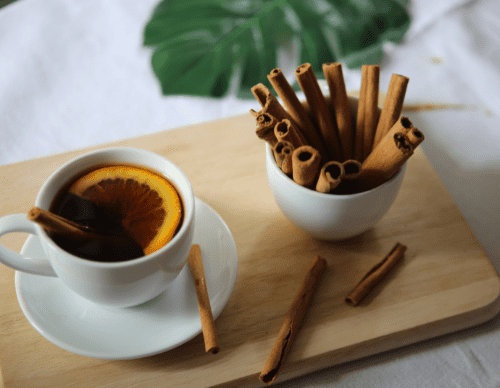We all have heard that tea can help you sleep, but is it truly good for your sleep? Should you drink tea before bed? Will tea cause more harm than good when consumed before bed?
The simple answer to should you drink tea before bed is yes, but it depends on what type of tea you consume. A new study conducted by researchers has shown that tea can actually improve your ability to fall asleep. People need to sleep 7 to 8 hours a night in order to maintain optimal physical and mental health. Unfortunately, not everyone is able or willing to get enough sleep each night. L-theanine is an amino acid found in tea, primarily green tea. It increases the levels of serotonin and dopamine to make you feel relaxed which aids not only in the process of falling asleep quicker but also improves the quality of sleep.
One aspect that needs to be kept in mind is the type of tea you are drinking before bed. Some teas are high in caffeine and can make you more alert and awake, which will get in the way of you getting more sleep and being well-rested. Make sure the tea you consume is low in caffeine to avoid this from happening. If done right, tea, along with tons of other health benefits, can also help you destress and improve your energy levels the following day.
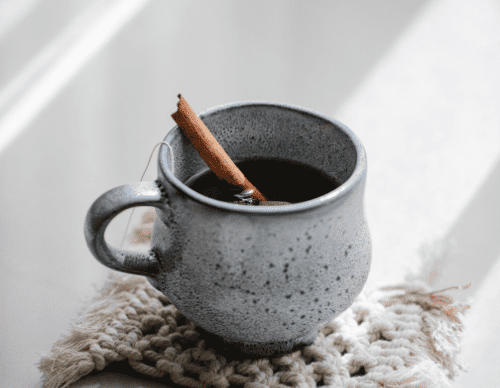
Table of Contents
5 Best Bedtime Teas To Help You Sleep Better
- Chamomile
- Valerian root
- Lavender
- Lemon balm
- Passionflower
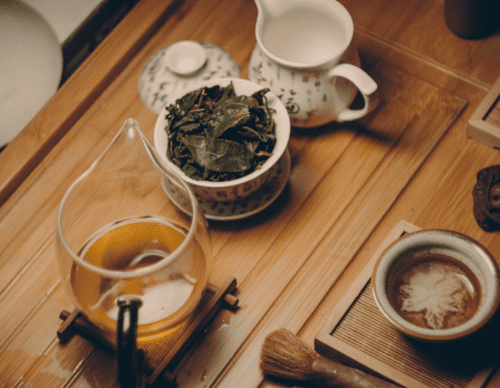
Benefits Of The Above Mentioned Teas
| Tea | Benefits |
| Chamomile | A flower with antioxidants that promote calm and help you fall asleep |
| Valerian root | An herb used to increase sleepiness, de-stress, and treat insomnia |
| Lavender | An herb with a soothing scent that helps you unwind and get sound sleep |
| Lemon balm | An herb that can act as a mild sedative to lower stress and aid sleep |
| Passionflower | A plant that can be used to alleviate anxiety and improve sleep |
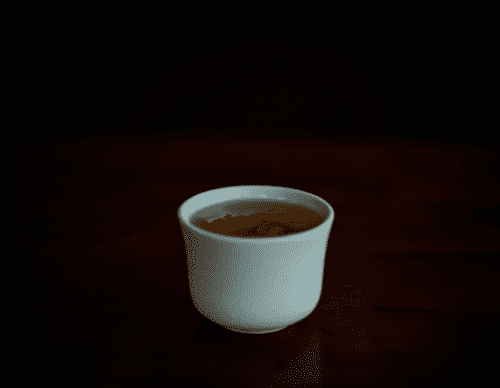
Should You Drink Tea Before Bed
What Are Some Of The Benefits Of Drinking Tea Before Bed
Caffeine, found primarily in tea but also chocolate, cola, and other drinks or foods, helps promote wakefulness by blocking adenosine receptors; therefore helping people feel more awake. The fact that tea also contains L-theanine makes it different from many other caffeine-containing products because L-theanine can counteract some of the negative side effects of caffeine, making it a better choice before bed. It can promote relaxation and improve mood by increasing levels of serotonin and dopamine in the brain. It works to inhibit the binding of L-glutamic acid to glutamate receptors, which helps reduce mental and physical stress, improving sleep quality.
For this reason, tea before bedtime has become increasingly popular as it contains two main ingredients that are known for their positive effects on sleep: caffeine and L-theanine.
Which Teas Are Good Before Bed
A lot of people like to drink tea before they go to sleep because tea has many benefits. Tea helps to relax the muscles and reduce stress. This, in turn, will help put you into a sleepy mindset that can lead to sound sleep.
However, not all tea makes for the best tea before bedtime. Some teas are too caffeinated or have ingredients that can keep you up at night. It’s important to avoid these types of tea if your goal is to get better sleep each night. Herbal teas such as peppermint, chamomile, ginger teas are great for winding down and getting a good quality of sleep at the end of a busy day.
Many great tea types can be enjoyed before bedtime. Teas with melatonin, teas to reduce stress levels and teas that are not going to keep you up at night are all tea options that will help you get a good night’s sleep. Of course, always check the label of whatever tea you purchase for the caffeine content, especially if you are sensitive when it comes to this stimulant, as some teas may have more than others. Look for an herbal tea, like the ones mentioned above, or the ready-to-make blends, when possible, one without any stimulating ingredients or other additives.
Tea can also be mixed with honey or sugar to taste better, while sometimes milk may also be added to make the tea taste creamier. But these are not necessary – tea tastes good by itself! What else goes inside tea? Sometimes fruits or herbs are added in to enhance their flavor, too. Sandalwood pollen tea gives the tea a floral flavor, while mint tea adds an aromatic minty scent and taste. Some other ingredients to mix tea with include dried fruits (figs or dates), agave syrup, chamomile tea, or lemon slices.
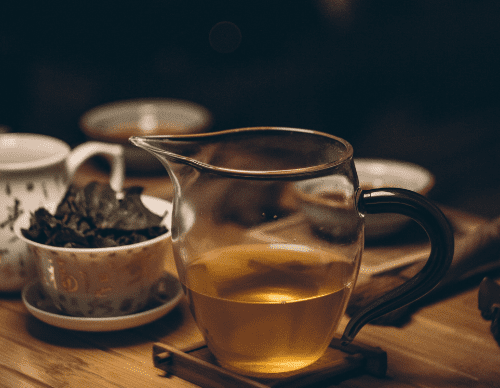
How Can Tea Help You Sleep Better
Several mechanisms contribute to tea’s beneficial effect on sleep. Tea contains L-theanine, an amino acid that crosses the blood-brain barrier and acts as a mild sedative. Studies have also shown tea to contain tryptophan, niacinamide (vitamin B3), PEA (phenylethylamine), and hordenine, which are thought to improve sleep quality by altering levels of histamine or neurotransmitters.
When Can You Drink Tea Before Bed
Caffeine’s alerting effects usually appear approximately thirty minutes after ingestion, with peak performance at two hours; however, the half-life of caffeine (the time it takes for 50% of a dose to be eliminated from your system) may vary based on the individual. In healthy adults who are habitual users, caffeine’s alerting effects wear off completely within three hours. Ideally, consuming tea 30-90 minutes before bed is the best.
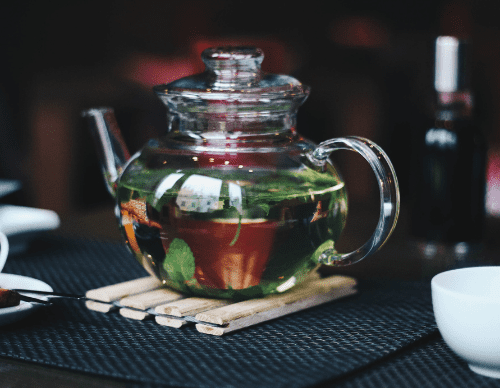
Other Benefits Obtained By Drinking Tea
Other Health Benefits Of Drinking Tea
Tea is not associated with obesity or diabetes. A study suggests tea consumption helps lower risk for type 2 diabetes in women by 54%. The polyphenols present in tea may increase fat oxidation during exercise, decreasing body weight over time. Polyphenols help manage glucose levels – especially beneficial if you’re insulin resistant due to increased cell proliferation. Tea is also neutral or slightly alkaline. This lowers your risk of kidney stones.
What Exactly Is Bedtime Tea
Bed tea is tea enjoyed before bed, typically to enhance sleep. It’s quite common in the Middle East where tea is very popular and consumed at almost any time of day. It’s for this reason that tea is often called the ‘Arabian tea’. Bed tea can vary depending on what other ingredients are added into it, but one thing remains constant – tea is always drunk before bed.
There can be certain positive effects on the way you feel after drinking bed tea. Some claim that tea slows the build-up of acid in your stomach, helping you to feel full earlier and thus hopefully eat less. Some say that tea, especially oolong tea, has a special ability to elevate your metabolism and burn more calories.
Tea is especially helpful in providing the body with the right vitamins and minerals needed for a good night’s rest. One tea that provides all of this is bed tea or tea before bed tea. Bed tea itself contains ingredients like chamomile tea or ginger tea which have been known to provide a lot of benefits for those who take it.
The tea itself has a soothing effect on the body and helps users achieve a good night’s rest without any problems. Ginger tea, for example, is known to be a great anti-inflammatory agent and many people have testified how much they have benefited from it. Bed tea does many things to those who take it. For one, tea is known as a great anti-inflammatory agent which helps those who drink it relax after a long day at work or school. When tea is consumed before bed, tea can help you relax which helps you sleep better at night.
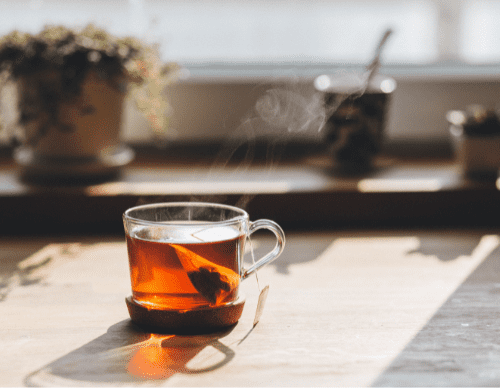
Is Drinking Tea At Night Bad For You
So you love tea. It’s your savior in the morning when you’re feeling sluggish and tea is what keeps you standing at work. You can’t imagine dinner without tea and tea is just perfect after a good meal. But wait… Is drinking tea at night bad? The combination of caffeine and tannin, as well as L-theanine, might theoretically go together well. It works in tea – so why not in your body?
The above statement remains true if we’re talking about positive effects on health; however, we’re now turning to the negative ones. Caffeine stimulates your nervous system and increases alertness (and thus decreases the chances of falling asleep). Tannins increase heart rate and lower blood pressure. The combination of these two things creates a very stressful effect on your body. And this is exactly what you don’t need before bed – stress!
So, the answer to this question really depends on what type of tea it is and how much caffeine it has. What we must first understand, however, is that caffeine consumed orally has a half-life of 3.5 – 7 hours
The Catechins Present In Tea Can Improve Sleep Quality
According to a recent study published online in the Journal of Clinical Sleep Medicine, drinking tea may actually improve your quality of sleep. The research team looked specifically at how tea consumption affected people’s objective and subjective evaluations of their own quality of sleep. Participants were randomly selected from an existing group. All participants lived within an urban setting.
At the initial visit, participants filled out a questionnaire and underwent a clinical interview in order to assess tea consumption. They were also screened for insomnia complaints, which was determined by the presence of at least three of six potential symptoms: trouble falling asleep, waking up frequently during sleep, early morning awakening, struggling for sleep at night despite being tired, use of sleeping medications or other drugs that could affect sleep, and dissatisfaction with your ability to fall asleep within 30 minutes.
Participants who reported drinking tea every day for more than thirty days prior to their initial visit were assigned tea drinkers as their subgroup. On the other hand, participants who did not report tea consumption were assigned non-tea drinkers as their subgroup. After this initial evaluation period, all participants received two nights of sleep monitoring at their homes. In addition, tea drinkers were instructed to drink tea daily for a month before having another night of home monitoring. Researchers compared polysomnography results from these two weeks with tea consumption and without tea consumption, as well as subjective evaluations of the quality of sleep.
Tea drinkers experienced an increase in Stage 4 (deepest) non-rapid eye movement (REM) sleep on nights after tea drinking, while non-tea drinkers experienced no significant change in any stage of sleep after tea or water drinking. Tea was also associated with higher scores on subjective reports measuring the perceived quality of sleep according to the Pittsburgh Sleep Quality Index (PSQI), which asked questions like how difficult it was to fall asleep and stay asleep and whether or not you spend excessive time in the bathroom during the night.
On average, tea drinkers who were poor sleepers reported improved sleep quality following tea consumption, while non-tea drinkers who reported good sleep quality did not report any change. The researchers concluded that tea may be beneficial for improving objective and subjective measures of insomnia, even in individuals who already experience healthy sleep patterns.”
So should you drink tea before bed? It certainly looks like it! Not only does tea have low caffeine levels compared to coffee, but now it also has evidence showing that tea aids in falling asleep. If you are looking for a delicious way to improve your chances of falling asleep at night without harmful side effects, then this research is very encouraging.
However, tea does not replace healthy sleep habits. If you struggle with insomnia regularly, then the tea will help but it is important to develop good personal sleep hygiene. Try your best to keep a regular sleep schedule and minimize distractions such as light, noise, and temperature changes that may interfere with quality sleep.
So now you know tea can improve your ability to fall asleep at night. Whether you are looking to improve your sleep quality, reduce stress, or just want a cup of tea to relax with before bed, tea is a wonderful option for you!
